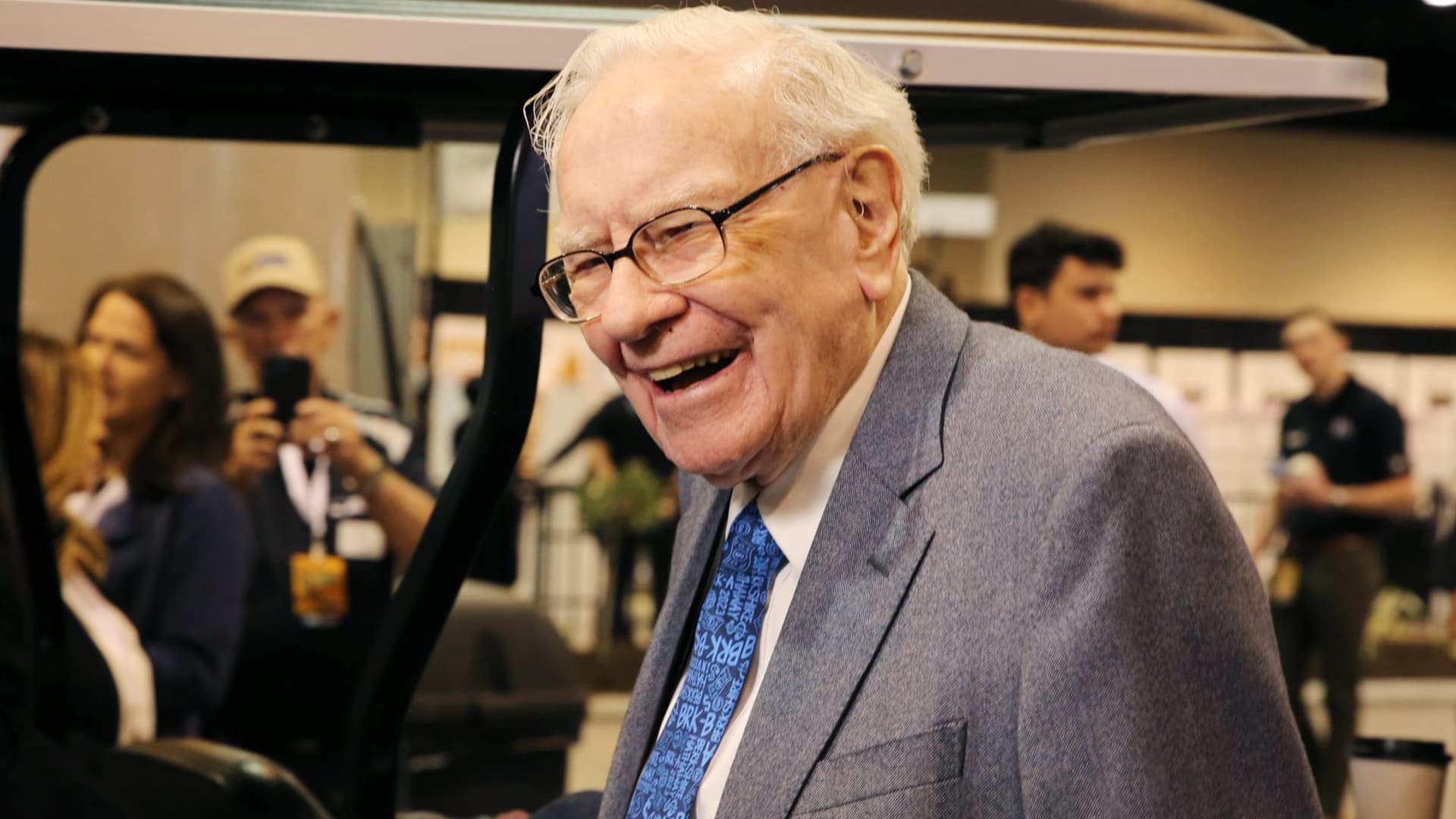Warren Buffett’s Berkshire Hathaway reached a $1 trillion market capitalization on Wednesday, the first non-technology company in the U.S. to score the coveted milestone.
Shares of the Omaha-based conglomerate have rallied more than 28% in 2024, far above the S&P 500’s 18% gain. The $1 trillion threshold was crossed just two days before the ‘Oracle of Omaha’ turns 94 years old.
The shares were up 1.2% to hit a high of $699,440.93 on Wednesday, allowing it to top the $1 trillion mark, per FactSet.
Unlike the six other companies in the trillion dollar club (Apple, Nvidia, Microsoft, Alphabet, Amazon, Meta), Berkshire is known for its old-economy focus as the owner of BNSF Railway, Geico Insurance and Dairy Queen. (Although its sizable Apple position has helped drive recent gains.)
The $1 trillion milestone “is a testament to the firm’s financial strength and franchise value,” said Cathy Seifert, Berkshire analyst at CFRA Research. “This is significant at a time when Berkshire represents one of the few remaining conglomerates in existence today.”
Buffett took control of Berkshire, a struggling textile business, in the 1960s and transformed the company into a sprawling empire that encompasses insurance, railroad, retail and energy with an unmatched balance sheet and cash fortress.
Buffett has been in a defensive mode as of late, dumping a massive amount of stock, including half of his Apple stake, while raising Berkshire’s cash pile to a record $277 billion at the end of June.
While Buffett famously never times the market and advises others to not try to either, these recent moves served as a wake-up call to some of his followers on Wall Street, who believe he saw some things he did not like about the economy and market valuation.
Berkshire invests the majority of its cash in short-term Treasury bills, and its holding in such securities — valued at $234.6 billion at the end of the second quarter — has exceeded the amount the U.S. Federal Reserve owns.
So it’s hard to judge why investors are rewarding Berkshire with the $1 trillion crown today, whether it’s a bet on the American economy and Buffett’s sprawling set of businesses set to benefit if it keeps chugging along or whether they see Berkshire as a cash fortress that will generate steady income in the face of an uncertain macro environment.
The conglomerate also started a selling spree of Bank of America shares in mid-July, dumping more than $5 billion worth of the bank stock. Buffett bought BofA’s preferred stock and warrants in 2011 in the aftermath of the financial crisis, shoring up confidence in the embattled lender struggling with losses tied to subprime mortgages.
Strong earnings
After Berkshire’s latest strong second-quarter earnings, UBS analyst Brian Meredith increased his 2024 and 2025 earnings estimates because of two factors: higher investing income and higher underwriting results at insurance group including GEICO. Insurance stocks have been on a tear this year as the group continues to raise prices coming out of the pandemic.
Meredith sees Berkshire’s market value rising far above $1 trillion, raising his 12-month price target to $759,000 for the A shares, almost 9% higher than Wednesday’s level.
“We continue to believe BRK’s shares are an attractive play in an uncertain macro environment,” he wrote in the note earlier this month.
High price tag
Berkshire’s original Class A shares carry one of the highest price tags on Wall Street. Today, each one sells for 68% more than the median price of a home in the U.S.

That’s because Buffett has never split the stock, arguing that the high share price attracts and retains more long-term, quality-oriented investors. The Ben Graham protégé has said that many Berkshire shareholders use their stock as a savings account.
Still, Berkshire issued Class B shares in 1996 at a price equal to one thirtieth of a Class A share to cater to smaller investors wanting a small piece of the Buffett’s performance.
